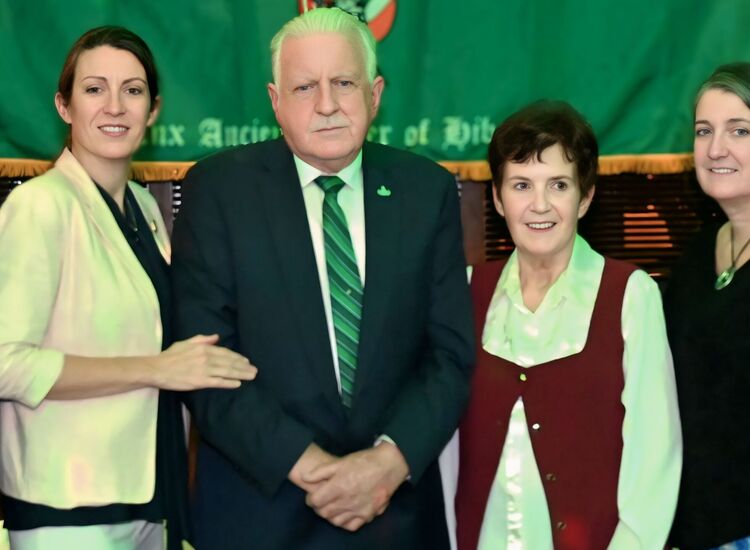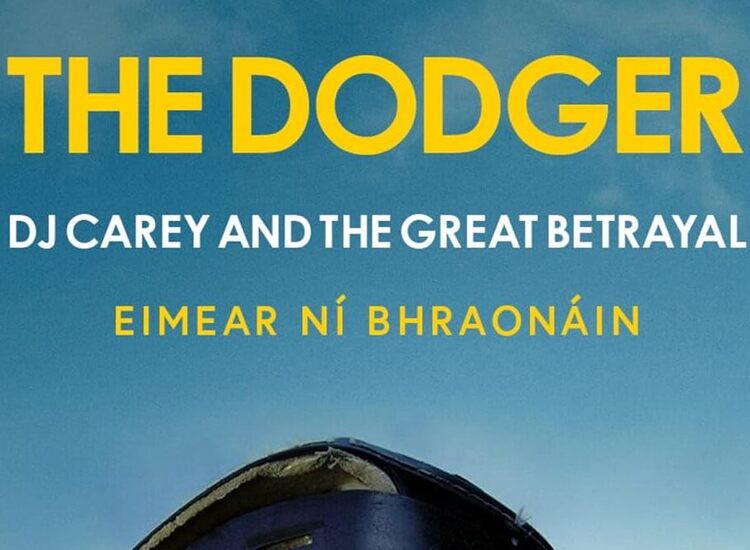"Anti-Semitism" is the latest book from Deborah Lipstadt, who came to public prominence when a celebrated libel case went to court in London 20 years ago.
Between the Lines / By Peter McDermott
British Labour Party Member of Parliament Alan Johnson described in September 2015 the newly elected leader of his party, Jeremy Corbyn, as someone who does not “indulge in antisemitism himself,” but rather “indulges in the antisemitism of others.”
Deborah Lipstadt, in her 2019 book “Antisemitism,” puts Corbyn in the same category as Donald J. Trump, and discusses them both in a chapter entitled “Antisemitic Enablers.”
Lipstadt came to prominence in 2000 when historian David Irving’s libel case against her and her publisher Penguin went to trial in London. Alleged Holocaust denial on his part — in speeches at right-wing events and more importantly in his well-regarded books — was the issue at stake.
Irving sued at the same time the celebrated veteran author Gitta Sereny and the Guardian Media Group for two reviews in the Observer in which she accused him of deliberate falsification of the historical record. The Sereny case didn’t go to court ultimately, but it cost the Guardian a great deal of money in legal costs.
Lipstadt traveled from America to fight her case, and won. D.D. Guttenplan, in his book “The Holocaust on Trial,” wrote that “Irving claimed that he couldn’t be described as a ‘Holocaust denier’ because the gas chambers themselves were a hoax. Lipstadt and her lawyers were, in effect, forced to prove the reality of the Holocaust.”
Guttenplan, now the editor of the Nation, was writing specifically in the context of the UK’s libel laws; but one has to wonder if having to prove the reality of the Holocaust might not, at some point, become a big issue in the U.S., the country with the world’s second-largest Jewish population. On the one hand, we already have a problem with Neo-Nazism and white supremacism, and, on the other, denialism in all sorts of categories has become a scourge undermining democratic institutions.
Charlottesville chant
Someone like Trump, in Lipstadt’s view, with no deep-seated ideological convictions, facilitates the spread of antisemitism for a “utilitarian” purpose, but he and his ilk are “directly responsible for the legitimization of explicit hostility towards Jews.”
She adds, “On some level, I find the utilitarian antisemite — the pot-stirrer who enables haters — to be more reprehensible than the ideologue who openly acknowledges his antisemitism. Because he is not affiliated with any extremist group, the utilitarian stands a better chance of both plausibly denying his antisemitism and influencing an audience that would never listen to an extremist.”
She writes, “When challenged, antisemitic enablers will often cite their personal relations with Jews,” she writes. “But the rationalization that ‘some of my best friends/relatives are Jewish/black/gay so therefore the antisemitic/racist/homophobic things I say cannot possibly be antisemitic/racist/homophobic’ is both ridiculous and deplorable.”
The chant of “Jews will not replace us” was heard in Charlottesville, Va., in August 2017 and a counter protester was murdered the same weekend. (In August 2019, the Anti-Defamation League reported that white supremacists had killed 73 people since Charlottesville, with 39 murders clearly motivated by the ideology).
Trump said there were “some very fine people” marching with the far right. He struggled for days to square the circle: express outrage in the way any normal national leader should and yet not overly offend the extremist, and often most enthusiastic, elements in his base.
Failure to condemn
Lipstadt recalls Trump’s 2016 campaign appearance before the Republican Jewish Coalition, which she writes, “left his audience reeling” by hitting “almost every millennial-old antisemitic stereotype…”
More serious for her was his failure to condemn supporters who targeted Jewish reporters with antisemitic vitriol, as was a speech in which he said his campaign was a message for “those who control the levers of power in Washington and for the global special interests.” His last television ad used the same phraseology, she says, with images of “Democratic candidate Hillary Clinton and three Jews: financier George Soros, Federal Reserve chair Janet Yellen, and Goldman Sachs CEO Lloyd Blankfein.”

Aoife Gallagher is an analyst with the Institute for Strategic Dialogue.
The editor of the white supremacist and antisemitic website Daily Stormer was delighted. He wrote, “Our Glorious Leader and ULTIMATE SAVIOR has gone full wink-wink-wink to his most aggressive supporters.”
Trump as savior is getting lots of play recently thanks to the not unrelated QAnon conspiracy theory.
“Followers believe that a cabal of pedophiles runs the United States, they control the media, Hollywood and politicians, and the only person who can stop them is Donald Trump,” reported Stephanie Hegarty last month for BBC’s “Newsnight.”
She said it “has become a sort of cult of President Trump.”
“Just this past weekend, Trump has retweeted QAnon dozens of times,” said Angelo Carusone, the CEO of Media Matters for America, a left-of-center think tank.
Travis View, a researcher on the phenomenon and a host of the podcast QAnon Anonymous, told Hegarty the more extreme versions of the conspiracy theory posit that “celebrities and political elites farm out children in underground caves so they can drink blood which supposedly staves off aging.”
View and his colleagues on the QAnon Anonymous podcast, confirm that antisemitic themes are not far from the surface.
Missing child
Hegarty, a Dubliner, asked Aoife Gallagher, an analyst in London with the Institute for Strategic Dialogue, which studies extremism, why her group was interested in the phenomenon, which has surged since the pandemic hit. She replied, “QAnon was labeled a domestic terror threat by the FBI last year.”
Added Gallagher, who is originally from Donegal, “It was born on platforms that are really associated with white supremacist movements, with far-right extremism. And although you can’t really label Q followers as that, the conspiracy is tangential to that side of extremism.”
Reviewing for NPR Edward Berenson's “The Accusation: Blood Libel in an American Town” last September, Ilana Masad said, “I don't remember when I first heard the false narrative according to which Jewish people murder Christian children and use their blood to bake matzo — but it always registered with me as a bit of a joke. Ridiculous, I thought. Surely no one could have ever believed that, not really.”
Well, Berenson’s book centers around an episode in Massena, N.Y., in 1928. A 4-year-old girl went missing (she was found safe a day later) and the 300-strong search party soon turned its spotlight on the town’s Jews, when it was suggested she’d been taken for ritual slaughter. “The rumor was taken seriously enough that despite having no evidence,” Masad wrote, “the police questioned the town's rabbi, which shook him and the small Jewish community enough that they feared a pogrom was imminent.”
“As frightening in its own way as prime Stephen King,” said the Daily Beast’s reviewer. “A warning from the past that can’t be ignored.” Indeed.
In the “Newsnight” report, Carusone, of Media Matters for America, said, “The thing that scares me the most about Q is that it has all of the right ingredients for genuine and sincere and intense violence.”
An interesting footnote to all of this concerns conservative media. In the U.K. the Murdoch empire was quite happy to relentlessly hound the former Labour leader on the issue of antisemitism; in the U.S., in contrast, it enables the enabler.








